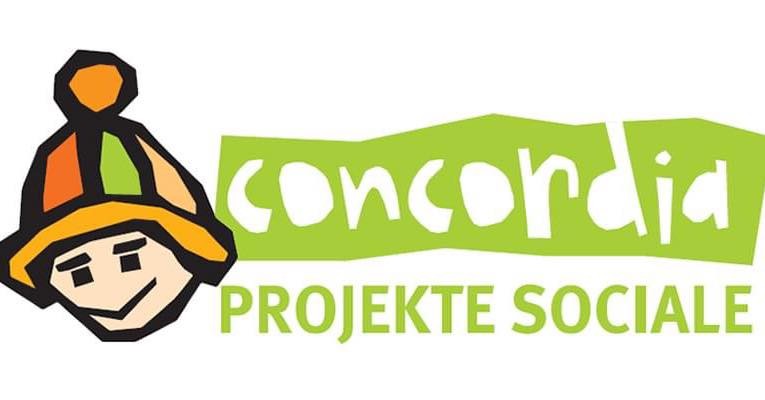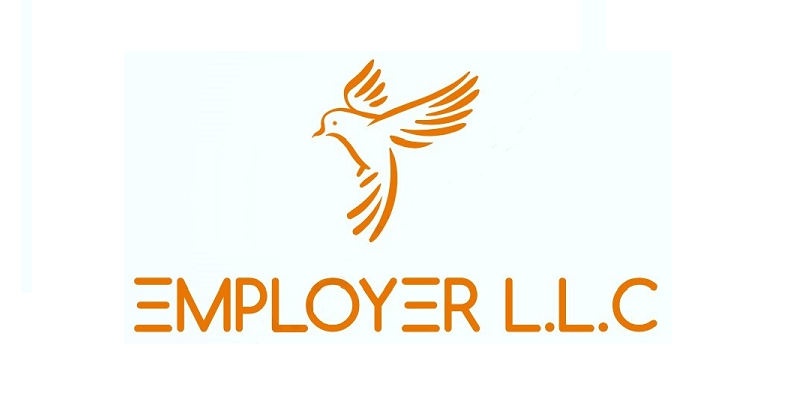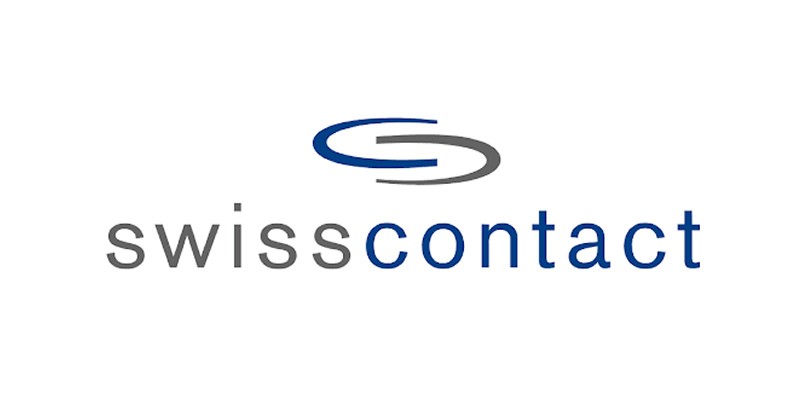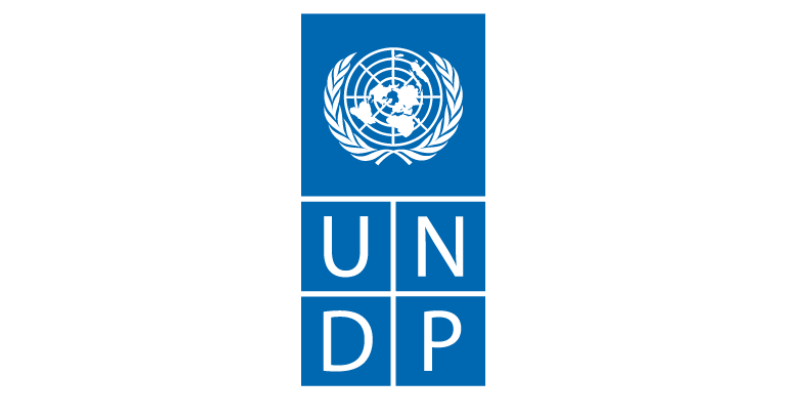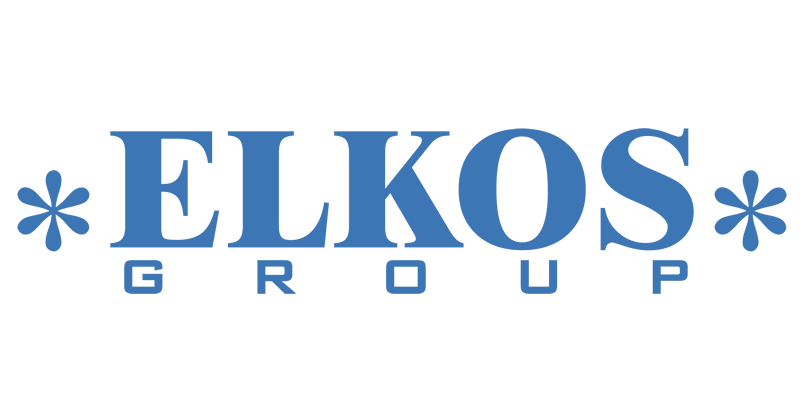Përshkrimi
Call for expression of interest
Terms of Reference(ToR) for
Final Evaluation of the project
FILLO (Future Independent Life through Learning and Opportunities)
Country: Kosovo
Main location of activities: Municipality of Prizren
Project Number: KS 24185A
Project funded by: Renovabis Foundation Germany and Catholic Central Agency for Development Cooperation (KZE)
Date of announcement: 25.04.2024
Announced by: CONCORDIA Projekte Sociale
Announcement valid until: 08.05.2024
Evaluation report to be ready by: 31.07.2024
- Statement
The evaluation outlined in these Terms of Reference (ToRs) represents a thorough and impartial evaluation of a concluded project, encompassing its execution and outcomes. The aim is to determine the relevance and fulfilment of objectives, implementation efficiency, effectiveness, impact and sustainability.
All quantitative and qualitative data gathered during the evaluation process are owned by CONCORDIA Projekte Sociale and may only be utilized with their explicit consent.
2. Short introduction of CONCORDIA Projekte Sociale
CONCORDIA Projekte Sociale (CONCORDIA) is the youngest organisation among the CONCORDIA Social Projects organisations in Europe and has committed to the overall vision of CONCORDIA organisations to support children, young people and their families to lead a self- determined life outside of marginalization.
CONCORDIA was established in Kosovo as an “Association” on 11th December2020 and has obtained the Public Benefit Status (PBS) first time in January 2021, that further has been obtained annually. Its headquarter is in Prizren, Rr. Lahuta e Malësisë pn 20000.
CONCORDIA provide scommunity support services for vulnerable children, youth, and families, mainly from the country's minority ethnicities, including Roma, Ashkali, and Egyptians. The efforts are tailored individually to improve the socio-economic situation of beneficiaries in the long term. In the Tranzit Center runs a program for academic support, early childhood education for children aged 3 to 6, music lessons, artistic crafts workshops, social and psychological counseling for children, youth, and their families, vocational counseling for youth, health support, and nutritional assistance. Parent and family meetings are regularly organized for exchanges, training, and support through projects such as the Women's Support Group, Parent School, Vocational Counseling, and a mobile team to reach families in rural areas. The services provided in the Tranzit Center are licensed as learning centre by the Ministry of Education and as social services for children and parents in need by the Ministry of Justice.
Currently, the total number of employees of CONCORDIA consists of 24 long-term employees (18 Full Time Equivalent), including teachers, social workers, psychologists, educators, and administrative staff. As of the end of March 2024,CONCORDIA provides services to 73 families
with 497 members, out of which 279 children. From these, 132 children actively participate in the daily activities of the CONCORDIA Tranzit Center, the others being supported by the mobile team.
The FILLO project implemented by CONCORDIA Projekte Sociale and outlined below, made a substantial contribution towards achieving the above-mentioned outcomes.
3, Information about the project to be evaluated
3.1 The overall goal of the project FILLO (Future Independent Life through Learning and Opportunities) with Concordia Kosovo in Prizren Tranzit is to enables vulnerable children, youth, women, families and communities in the Municipality of Prizren to live self-determined lives free from marginalization and discrimination.
3.2 Project Goals &Indicators
Systemic Dimension
Project Objective 1: A professional multidisciplinary team strengthens the local social service system in Prizren municipality.
Indicators:
1.1 : 6 professionals work with individuals and families based on a multidisciplinary and inclusive approach.
1.2: 70% of individuals and families directly reached report having access to necessary professional social services.
1.3 : 85% of training hours offered (80 hours/staff/year) and supervision hours(48 hours/year) are utilized by staff of the multidisciplinary team and CONCORDIA Tranzit Center.
Individual dimension
Project Objective 2: Vulnerable individuals (especially children, youth and women) and families in Prizren municipality show improved well-being in terms of health, education and labor market integration.
Indicators:
2.1 : 80% (of 65 children)report improved health and emotional well-being.
2.2: 85% (of 45 students) achieve a high school diploma(secondary school) or are promoted to the next grade.
2.3 : 80% (of 25 youth and 15 women) are registered in the job placement system by the end of the project period.
2.4: 75% of the families directly reached support their children in their educational as well as training path and resolve family conflicts without violence.
Social dimension
Project Objective 3: Communities in Prizren municipality have increased awareness of children's rights and vulnerable children as well as youth turn to CONCORDIA for help and counseling.
Indicators:
3.1 : 100 children/year can name at least three different children's rights.
3.2 : By the end of the project, a total of 100 children have contacted the CONCORDIA team with case reports of abuse and violence.
3.3 : Annually, 20% more community members (baseline 2021: 0 members) participate in CONCORDIA community activities.
3.4: Annually, 4 advocacy workshops and 4 awareness raising activities are organized together with representatives of local authorities, schools, social institutions and NGOs.
3.3 Duration of the project is 01.10.2021 – 30.06.2024, a total of 33 months.
3.4 The total budget of the FILLO project is 1.063.610,00 € and Renovabis & KZE will co- finance up to 65,72% (699.000,00 €).
3.5 The location of the project is Prizren, but activities are conducted also in few rural areas of Municipality of Prizren (Landovica, Zhur, Pirana).
4. Purpose of the evaluation
This evaluation shall be conducted towards the end of the project and should be finalised by 31.07.2024, focusing on the entire implementation period. Its primary objective is to assess the project's performance in relation to its overarching objectives. The evaluation will scrutinize the project's relevance, overall approach, specific interventions, and the attainment of predefined indicators.
Furthermore, the evaluation should identify changes as potential effects of projects activities. Emphasis will be placed on extracting lessons learned to inform future planning endeavors. Consequently, the evaluation will comprehensively capture insights on project management, including planning and monitoring tools, as well as the execution of project activities and the resultant outcomes. These insights will be integrated into the development of subsequent projects.
Based on the findings and conclusions from the assessment of the project’s achievements, the review will identify which areas could be improved and which activities should be implemented for a longer period of time. In this context, possible recommendations regarding the sustainability of project results should be generated.
5. Objectives of the evaluation
The main objective of the evaluation is to assess and present results(output, outcome), conclusions, lessons learned and recommendations at the end of the project.
Under the relevant Organisation for Economic Co-operation and Development (OECD) Development Assistance Committee (DAC) evaluation criteria (relevance, impact, effectiveness, efficiency and sustainability) the evaluation team has to analyse the following points:
a) Relevance: assess how well the objectives of the project fit in the priorities and needs of community;
Are the expected results of the project consistent with the outcome, immediate impact and overall goal (as part of the analysis of the log frame matrix)?
b) Efficiency: based on project plans, monitoring indicators and reports, assess how efficiently the project met expected objectives by comparing outputs to interventions and engagements thereof. This will also include comparing costing factors and use of resources set out for the project.
To what extent were all items/equipment purchased and used as planned under this project? Was the project implemented in the most efficient way (time, personnel resources)? Have any issues emerged, if so which ones and why?
c) Effectiveness: assess the effectiveness of the project in terms of its objectives and progress against intended outcomes. Compare expected achievements of objectives at inception as stated in the logical frameworks against actual achievements of objectives at the time of the evaluation.
To what extent has the project already achieved its outcome or will be likely to achieve it? To what extent has the project already achieved its expected results or will be likely to achieve them?
What were the major factors influencing the achievement or non-achievement of the outcome/expected results? (Also consider any which were possibly beyond the control of the project)
Was the project managed as planned? If not, what issues occurred and why? To what extent have all projects take holders collaborated as planned?
Did the project contribute to capacity building as planned?
To what extent was gender mainstreaming included in the project?
To what extent was environmental mainstreaming included in the project?
d) Impact: Assess the positive and negative changes produced by a development intervention, directly or indirectly, intended or unintended. The examination should be concerned with both intended and unintended results and must include positive and negative impact of external factors.
What exactly has already changed in the lives of children, youth, parents, women, (immediate impact)?
e) Sustainability: Assess the extent to which the project benefits will continue to be relevant in the future. Analyze factors that promoted/or hindered ensuring long-term benefits of the project.
The stakeholders of this evaluation are the project implementing organization, partners and project participants.
Ensure that no participant is excluded on the grounds of sexual orientation, age, gender, religious belief, ethnic group or disability. The results be presented in a way that does not identify individuals?
6) Approach and Methods
The evaluation consists of several phases:
Contract and Kick-off meeting: Contract is signed and a discussion of the assignment takes place. First documents, including available data, are provided to the evaluation team.
Desk Study: The evaluation team studies all necessary project documents; re-construct and analyse the intervention logic and the ory of change and its assumptions. Existing data needs to be analysed and interpreted.
Inception-Phase: In the inception report the evaluators will describe the design of the evaluation and will elaborate on how data will be obtained and analysed. The use of a data collection planning worksheet or a similar tool is required. First interviews take place.
Data triangulation and quality control are very important and need to be discussed in the inception report.
The field trip will only take place upon official approval of the inception report by the contractor.
Field-phase: Data needs to be gathered, analysed and interpreted. It is expected that the evaluation will include quantitative and qualitative data disaggregated by sex.
Presentation: Presentation of key findings (feedback workshop) at the end of the field trip.
Final Draft Report: Submission and presentation of final draft report, inclusion of comments from contractor.
Final Report: Submission of final report.
For the different phases it is expected that data and information will be obtained through different methods, which could include:
- analysis of relevant literature and documents,
- structured or semi-structured interviews face-to face or by phone/online
- group discussions face-to face
- surveys
All data collected needs to disaggregated by sex, added value if age and urban-rural is also being considered.
The evaluation methodology will be based on participatory approaches and will be developed after the consultant is selected.
It is expected that the evaluation team will present concrete recommendations which are addressed to the specific stakeholders. We do expect the evaluation team to suggested a minimum number of stakeholders to be consulted for the evaluation.
7. Timetable
The following time plan has a preliminary character:
| Action | Responsible | Date |
| Launchthe tender | CONCORDIA | 25.04.24 |
| Submission of offers (electronically) | Evaluation experts |
08.05.24 (by midnight) |
| Evaluation of offers | CONCORDIA |
09 – 10.05.24 |
|
Negotiation with the bidder with the highest score |
CONCORDIA | 13.05.24 |
| Contract signed |
Contract signed between CONCORDIA and consultant |
15.05.24 |
| Provide documents | CONCORDIA to the consultant | 16.05.24 |
| Kick-Off meeting and presentation of the methodology by the consultant |
Meeting between CONCORDIA and consultant |
21.05.24 |
| Desk Study | Consultant |
22 - 31.05.24 |
| First interviews | Consultant |
03 - 07.06.24 |
| Submission of draft inception report | Consultant | 14.06.24 |
| Inclusion of comments in inception report | Consultant | 18.06.24 |
| Submission of final inception report | Consultant | 20.06.24 |
| Field Visit, interviews etc. and feedback workshop | Consultant |
21 - 28.06.24 |
| Submission of final draft report | Consultant | 17.07.24 |
| Presentation of final draft report | Consultant | 19.07.24 |
| Inclusion of feedback in final draft report | CONCORDIA | 25.07.24 |
|
Submission of final evaluation report (hard copy and electronic copy), in English and Albanian |
Consultant | 31.07.24 |
8. Responsibilities of consultant and CONCORDIA
The evaluation will consist of a participatory approach between consultant and CONCORDIA, for example:
- The evaluation methodology will be discussed with CONCORDIA staff for the final approval;
- The sample selection will be done in consultation with CONCORDIA staff;
- The consultant will update CONCORDIA staff on the progress of the evaluation on weekly basis;
- The consultant will comply by reading and signing the Child Protection Policy of CONCORDIA;
- CONCORDIA staff will provide the list of partners/stakeholders and relevant documents to the consultant;
- CONCORDIA staff will provide feedback for the elaboration of the final inception report and final report.
9. The Evaluation Team
The evaluation team will consist of at least two members, which consists of one leading national/international expert and at least one expert with sound national and international experience.
Key Qualifications in the team should be:
- All of them have well-founded backgrounds in social sciences(university degrees)
- The Team leader has conducted at least three evaluations in the last five years ideally in the relevant field
- The Team member/s have participated in at least three evaluations ideally in the relevant field
- The experts have excellent knowledge of English language and at least one is fluent in Albanian language
- Data analysis and presentation skills, and strong writing ability
- Expert knowledge of international and national legal framework for children, youth and families
- Knowledge of the local socio-political and economic context in Kosovo and of the children’s rights and child protection in Kosovo
- Experience in project cycle management and the evaluation of cross-cutting issues
- Sound MS Office and IT skills
- At least one letter of recommendation from relevant institutions/ NGOs.
10. Reports
The consultants will submit the following reports:
- an inception report (max. 15 pages without annexes),
- a final draft evaluation report (about 25-30 pages without annexes), including a draft executive summary and the results-assessment form (part of the reporting requirement)
- and the final evaluation report (25-30 pages without annexes), the final executive summary and the results-assessment form (part of the reporting requirement)
- A dissemination meeting (online or in Prizren), whereby key findings, lessons learned, and recommendations are shared with partners including a PowerPoint presentation of key findings and recommendations.
All reports need to be written in English and Albanian. The executive summary of the report shall not be longer than 4 pages and must be written in English and Albanian.
The findings and recommendations of the final report have to be structured according to the evaluation questions. An outline of the report’s structure needs to be agreed upon during the inception phase.
The quality of the reports will be judged according to the following criteria:
- Is the results-matrix format part of the report?
- Does the report contain a comprehensive and clear executive summary?
- Were the Terms of Reference fulfilled and is this reflected in the report?
- Is the report structured according to the OECD/DAC criteria?
- Are all evaluation questions answered?
- Are the methods and processes of the evaluation sufficiently documented in the evaluation report?
- Does the report describe and assess the intervention logic (e.g. log frame)and present/analyze a theory of change and its underlying assumptions?
- Are cross-cutting issues analyzed in the report?
- Are the conclusions and recommendations based on findings and are they clearly stated in the report?
- Does the report clearly differentiate between conclusions, lessons learnt and recommendations?
- Are the recommendations realistic and is it clearly expressed to whom the recommendations are addressed to?
- Were the most significant stakeholders involved consulted?
- Does the report present the information contained in a presentable and clearly arranged form?
- Is the report free from spelling mistakes and unclear linguistic formulations?
- Can the report be distributed in the delivered form?
11. Application procedure
The offer should be written in English and shall contain the following mandatory documents:
| Technical offer: |
|
| Financial offer: |
* All prices shall be in EUR excluding VAT |
The interested applicants may submit the offers electronically to the email address: [email protected] with the subject “Final evaluation FILLO project”, for the attention of Mrs. Mirela Lavric, Executive Director.
The deadline for submission of offers is 08.05.2024, at midnight.
Tender documents submitted after the deadline will be automatically disqualified.
12. Tender evaluation
| Criteria for technical offer: | Experience of the team leader | 0 – 15 points |
| Team experience | 0 – 15 points | |
| Quality of the evaluation matrix, efficiency of the data collection methods (if all the requirements were considered) | 0 – 15 points | |
| Appropriate work/time schedule | 0 – 15 points | |
| Criteria for financial offer: | Remuneration for work is fixed in a corresponding manner | 0 – 40 points |
| Evaluation: |
Weight of Technical offer 60% Weight of Price offer 40% |
|
The bidder achieving the highest combined technical and financial score will be invited for negotiations.
Participants will be notified about tender results until 15.05.2024
